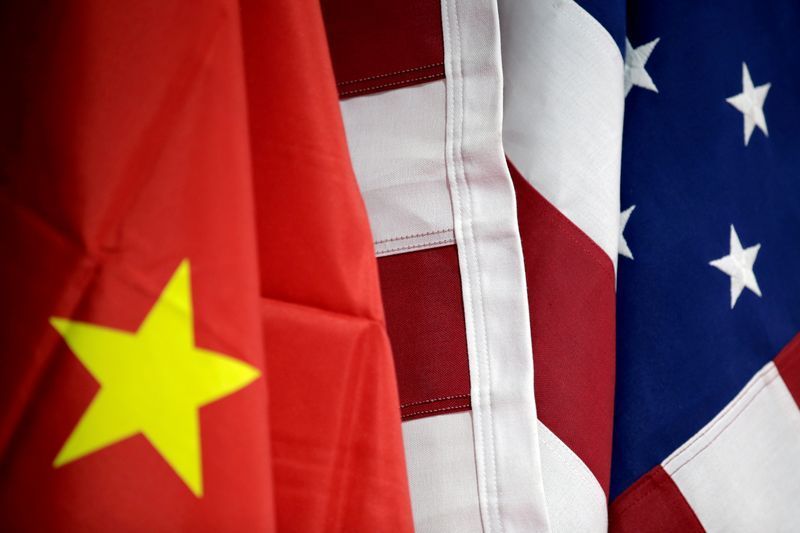WASHINGTON (Reuters) -The United States added dozens of Chinese companies, including the country’s top chipmaker SMIC and Chinese drone manufacturer SZ DJI Technology Co Ltd, to a trade blacklist on Friday as U.S. President Donald Trump’s administration ratchets up tensions with China in his final weeks in office.
Reuters first reported the addition of SMIC and other companies earlier on Friday. The move is seen as the latest in Republican Trump’s efforts to burnish his tough-on-China image as part of lengthy fight between Washington and Beijing over trade and numerous economic issues.
The U.S. Commerce Department said the action against SMIC stems from Beijing’s efforts to harness civilian technologies for military purposes and evidence of activities between SMIC and Chinese military industrial companies of concern.
The Commerce Department will “not allow advanced U.S. technology to help build the military of an increasingly belligerent adversary,” Secretary Wilbur Ross said in a statement.
The department also said it was adding the world’s biggest drone company DJI to the list along with AGCU Scientech; China National Scientific Instruments and Materials, and Kuang-Chi Group for allegedly enabling “wide-scale human rights abuses.”
“The United States will use all countermeasures available, including actions to prevent (Chinese) companies and institutions from exploiting U.S. goods and technologies for malign purposes,” Secretary of State Mike Pompeo added in a separate release.
SMIC and the other companies did not immediately comment.
But some lawmakers, industry executives and former officials raised questions about the impact of Friday’s move against SMIC. Generally, entity-listed companies are required to apply for licenses from the Commerce Department that face tough scrutiny when they seek permission to receive items from U.S. suppliers.
But SMIC will only face a tough review standard when it seeks licenses for highly advanced U.S. chipmaking equipment at 10 nanometers or below. Licenses for all other items shipped to the company will be reviewed on a case-by-case basis, the Commerce Department said.
“It’s a nice (public relations) line: ‘We’re putting it on this bad guys’ list,” said William Reinsch, a former Commerce Department official, who said he imagines the agency was already blocking shipments of such technology to SMIC. “As a practical matter … it doesn’t change anything.”
Republican Congressman Michael McCaul, ranking member of the House Foreign Affairs committee echoed Reinsch’s comments, saying he feared the rules were more “bark than bite.” “I have concerns it undermines the intent, and may create an exception for malign actors to evade U.S. export controls” he said in a statement.

